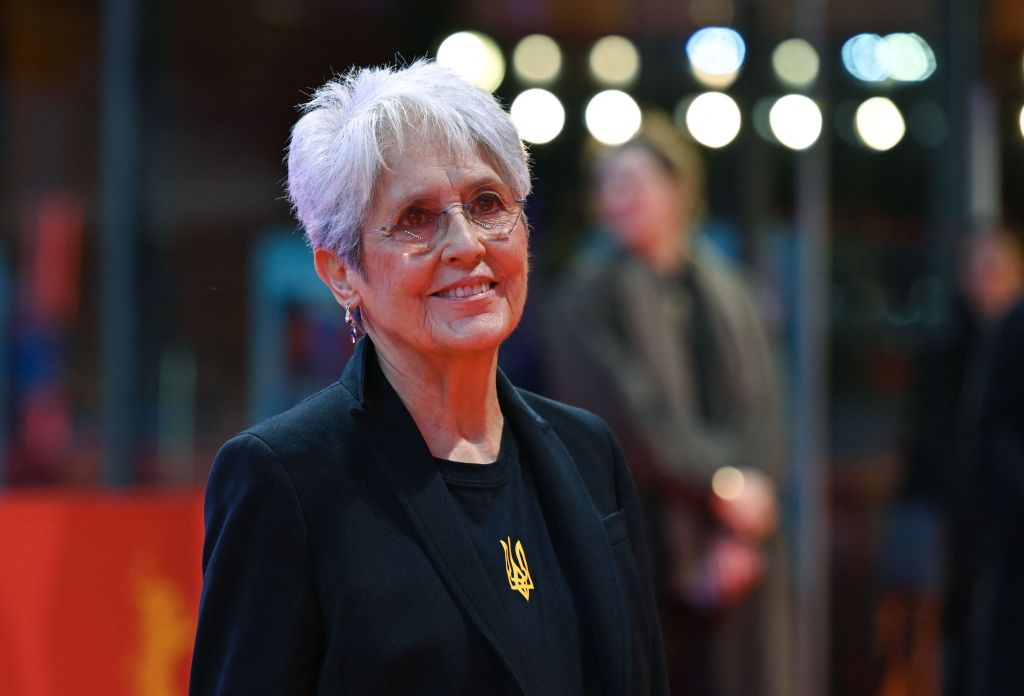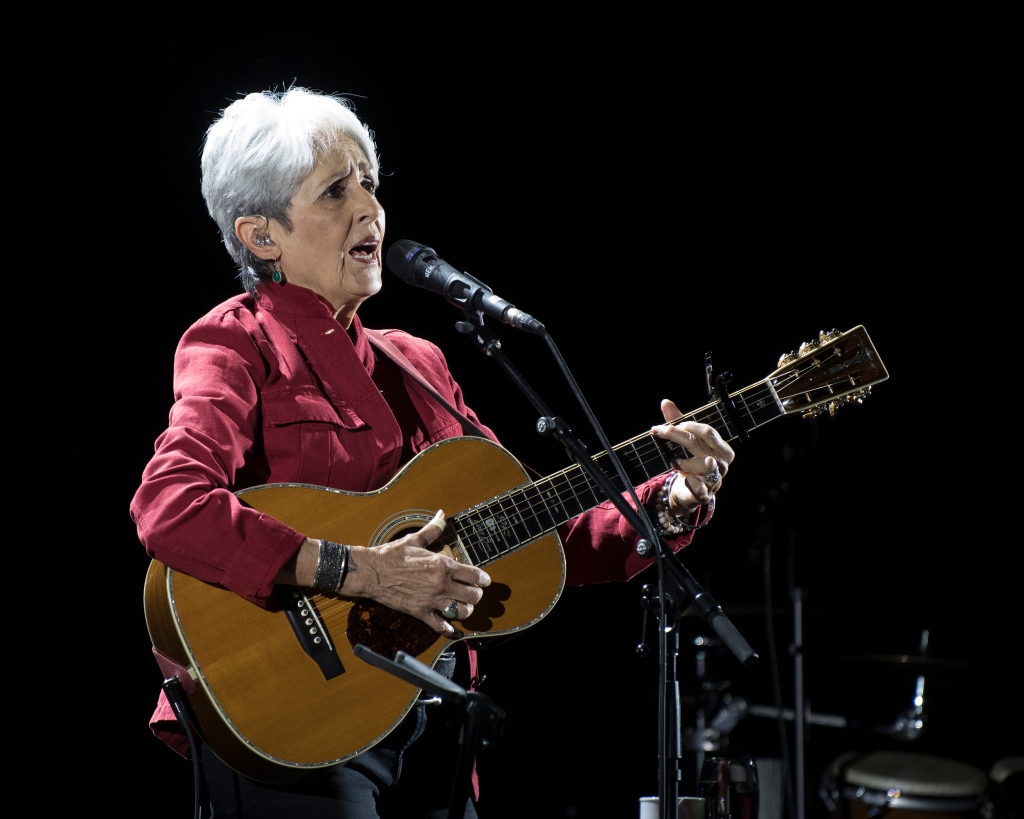No one should be surprised by Bob Dylan anymore
In many ways, Joan Baez’s Rock & Roll Hall of Fame career will forever be intertwined with that of another 1960s folk legend: Bob Dylan.
So what did she think when the “Blowin’ in the Wind” bard received the Nobel Prize for Literature in 2016?
“I thought, ‘Oh, how Bob,’” Baez, 82, told the Hollywood Reporter. “I mean, people differ about whether or not he deserved it for his writing, but whatever — I thought he was a great writer of music. It moved me for half a century and millions of people ever since.”
But Dylan was a no-show in Stockholm to accept the prestigious honor. “It was so typical that he didn’t want to go and accept it,” said Baez. “And everybody gets so insulted and everybody’s surprised. And they shouldn’t be surprised anymore. He’ll go off and do a Chevrolet ad, what the f–k? So don’t be surprised [by Dylan] anymore. Just enjoy it.”
And when asked if she’s still in contact with the 81-year-old icon, Baez said, “Um, no.”
Known for fusing her music with a message in the 1960s and ’70s, Baez doesn’t think the same kind of convergence of art and politics could happen today.
“I think we have to look for what will be next, because that will never be recaptured,” she said. “That was decades of extraordinary politics and meaning and power and risk-taking and marches, and you can’t recreate that. I don’t know what the trigger is to make it actually happen. I think that the raw materials are there, and then whatever happens happens.”


For Baez, it was all a matter of arriving at just the right time to be a part of a historic movement in the ’60s. “I was sort of dropped out of the sky in the middle of this. Boom. Just starting with my folk songs, and then people writing songs that made my repertoire what it became,” she said. “So part of it, yeah, was the luck of the draw. It was the right years, the right decades. And I was fortunate enough to be there.”
The singer-songwriter — who is the subject of the new documentary “Joan Baez: I Am a Noise” — is not so sure that protest songs would have the same power today even if they existed.
“I mean, there’s still no ‘We Shall Overcome’ being written, there’s still no ‘Blowin’ in The Wind.’ Well, maybe there are, but where do you put them? On a platform? Will people find them? Will they have the same impact? These are questions I don’t know the answers to,” she said.
Read the full article Here


